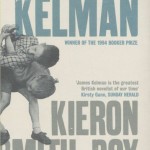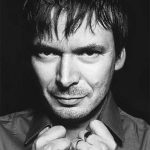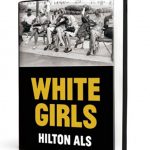Which one novel would you recommend to represent your country’s literature? The next stop on our tour is Turkey, where Ayla Douglas champions Sabahattin Ali’s modern classic Madonna in a Fur Coat
Support independent, non-corporate media.
Donate here!
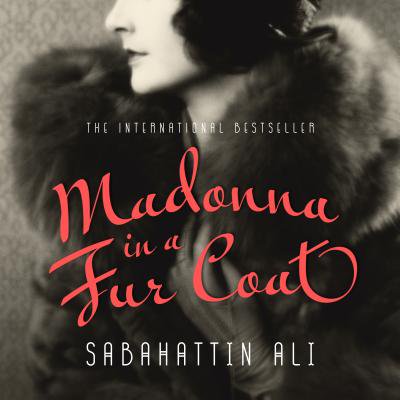
Turkish writing is both one of the world’s oldest, and at the same time youngest, literatures. The country’s legacy of written works span twelve centuries, but the Turkish Republic itself is just ninety eight years old. The upheavals, including brutal colonisation, resistance and wholesale social reforms, give Turkish writing a diverse literary heritage and dynamism. When it comes to Turkish literature in translation, Elif Shafak is globally one of Turkey’s better known and most prolific authors. She spans subjects such as Sufism, honour killing and sex work; her writing is a space where the struggles of women and LGBTQI+ are given standing. Orhan Pamuk, our Nobel Laurette, creates writing which is multi-layered, analysing Turkish history, art and culture but has won acclaim for its universal appeal. His most famous romantic work, “The Museum of Innocence”, led to him opening a museum of the same name in Istanbul which has become a top tourist attraction; a stunning, quirky physical manifestation of the novel itself. Yashar Kemal, another Turkish writer who an Istanbulu friend referred to as “the old and the gold” of Turkey, is best known for “Memed, My Hawk” and “They Burn Thistles”. He writes about the rural poor’s tortured relationship with nature in a fiercely beautiful but inhospitable land, and on the pain of forced resettlements.
However, if restricted to selecting one standout Turkish book, Sabahattin Ali’s “Madonna in a Fur Coat” is a forgotten gem, first published in 1943 but not translated into English in mainstream publishing until 2016. The novel is written with a framing narrative, introducing readers to a young, unnamed narrator who – finding himself feeling lost and unemployed – reluctantly accepts a job at bank from an old friend. He shares an office with Raif Efendi, a translator of German who the narrator upon first encounter considers to be unremarkable and somewhat pathetic. However when the narrator comes to read Raif’s diary, a hidden depth is exposed. He discovers details about Raif’s time in Berlin, where he was sent by his father to learn the secrets of the German soap making; knowledge to bring home from Europe and help him establish himself in business. Instead of studying soap making, however, Raif spends his days learning German, reading Russian literature (famed for its scarcity of happy characters) and frequenting art galleries. There he meets a German woman, Maria Puder, embarking on a tragic cross-cultural love affair. She is strong, independent, self-aware; he feckless, lost and unknowingly hungry for intimacy.
At surface level, the relationship is a canvas which allows Ali to use his expressive power to verbalise the experience of romantic love: “The moment the love already inside you comes, through mysterious forces, to concentrate its full force on a single point. Just as warm sunlight can, by passing through a lens, turn to fire, so too can love. It’s wrong to see it as something that swoops in from outside. It’s because it arises from the feelings we carry inside us that it strikes us with such violence.” Embedded within this short love story which explores the idea of connection, however, there is much more. The relationship plays out immediately following the birth of a new nation. Turkey was founded in 1923, following the violent collapse of the 600-year-old Ottoman Empire. Raif’s father sends him away from his hometown partly so his son won’t find himself drawn to rebel fighter units, springing up as Ottoman territories fall to foreign troops. In this context, the novel being set between Germany and Turkey allows for an exploration of changing national identity. Raif is an intellectual Ottoman descending from money, looking Westwards to learn about European ways of working and living. Europe was seen by some educated liberals of the time as an ideal; Raif refers to it as, “since childhood, the homes of my fondest dreams”. Raif soaks up European culture through reading the continent’s novels, much in the way that many in the East today are fed a Euro-colonial ideal through the soft cultural imperialism of Hollywood. As with all ideals, the reality is left somewhat wanting, as Raif ponders, “‘So this Europe,’ I said to myself, ‘Why all the fuss?’”. The price Raif pays for his time away chasing his dreams is that when he returns home, he sees he no longer belongs among Turks or Germans. Sabahattin Ali himself spent time in Germany and no doubt grappled with same struggles. The author is an interesting study of the results of the shifting boundaries of nation-statehood himself; he was a Turkish writer born in the Ottoman town of Eğridere, which is now Ardino in Southern Bulgaria.
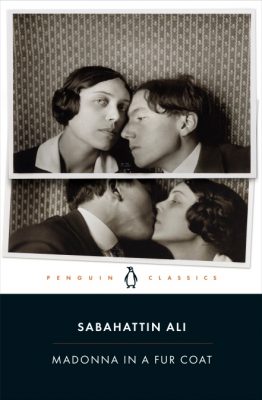
Although it may seem surprising given the period during which it was written, Madonna also provides a careful deconstruction of traditional gender roles, particularly in the context of relationships. Throughout the work, Raif is described as feminine or “like a woman”, in one scene wearing “brightly coloured women’s knitwear”, while Maria frequently says that she is “like a man”. She questions feminine ideals of the time; “…what I most hate is women always having to be so passive. Why? Why are we always the ones running away and you are the ones chasing after us? Why is it always that we surrender and you take the spoils? Why is it that even in the way you beg, there is a dominance, and pity in the way we refuse? I’ve been challenging this since childhood. I’ve never accepted it, ever.” Maria also displays a “distant avoidant” attachment style in their relationship (in very simple terms, avoiding commitment), an attribute considered more commonly masculine. In contrast to Maria, Raif struggles with feelings of unworthiness and anxiously gives a lot to make their relationship work; from the onset, it is agreed that the relationship must be entirely on Maria’s terms, and whilst her strong boundaries are laudable, Raif frequently ends up forfeiting his own. Although novels deconstructing gender in the 1940s are relatively rare, an examination of gender norms by an Ottoman author is apt as, until Euro-colonial ideology began to become more dominant in the region around the 19th century, Ottomans generally considered there to be three genders; boy, man and woman. They also believed in a type of gender fluidity, in the sense that boys transitioned to become men.
In examining love, attachment and gender roles, Madonna doesn’t just present us with inexplicable behaviours; as the reader moves through the book and learns more about Raif, the clear impact of childhood trauma on his behaviour and relationships becomes more apparent. He is rejected by his father, who accuses him of being feminine and does not accept him for who he is; “The more I grew in my own eyes, the smaller I was in his.” This results in his own repression; “I shall hide it all away, in a place no one will ever find. Everything, everything. But especially my soul.” At the novel’s conclusion Ali paints a picture of the devastating impact of a lack of self-belief born of trauma and an abundance of self-pity, when left unaddressed.
Although not morally dogmatic, Ali has many things to teach through Madonna, including the importance of digging deeper with those around us and not accepting people at face value; even those who seem dull and lacking life. It isn’t a perfect piece; in some ways Madonna is of its time (there are a couple of jarring flashes of a Madonna/whore complex). In other ways, it’s decades ahead. Ali sees that Maria carries masculinity and femininity, as does Raif. They both have aspects to their identity that deviate from the norms of their respective contexts and behave in ways that are unconventional for the societies in which they grew up. They refuse to conform to definitions of man and woman. At its heart, Ali shows us that we are more than our descriptors. We are all more than a man, a woman, a Turk, a European. Much in the way that Madonna is more than just a romantic novel; it’s a sparkling, miniature masterpiece.
*
If you enjoyed this article, please donate to Product. We’re an independent publisher with charitable status (SCO 29793). The magazine is produced by volunteers. We showcase work by new writers, artists and photographers at an early stage in their careers, many for the first time. A small donation helps us publish more work, more often and meet the running costs of the magazine. Please donate here:






